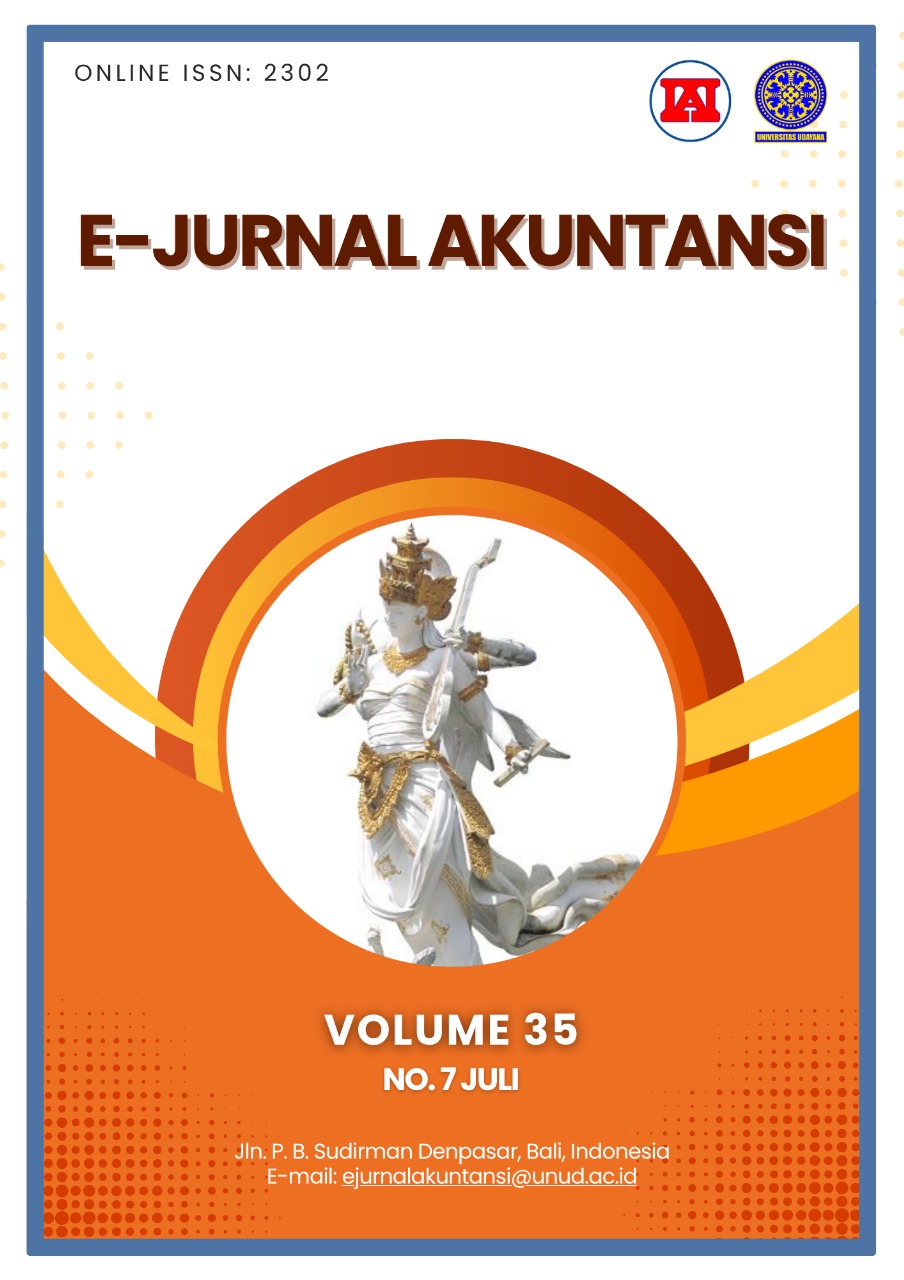The Transformation of Import Tax Collection on Consignment Goods through Self-Assessment: An Empirical Study at Soekarno-Hatta International Airport
Abstract
The self-assessment system in the importation of consigned goods is a new policy that shifts the responsibility for reporting and calculating duties and customs values from customs authorities to importers. This study aims to evaluate the implementation of the self-assessment system policy for consigned goods imports using the OECD evaluation criteria, which include relevance, coherence, effectiveness, efficiency, impact, and sustainability. A qualitative approach was employed, with data collected through document analysis and in-depth interviews with policymakers, the Directorate General of Customs and Excise (DGCE), logistics service providers, and importers. The findings of this study indicate that the policy meets the dimensions of coherence, impact, and sustainability, as it has improved importer compliance in reporting import duties and was designed collaboratively to enhance the taxation system and protect domestic production. However, the policy falls short in terms of relevance, effectiveness, and efficiency. From the government's perspective, the policy aligns with national priorities and has the potential to enhance effectiveness and efficiency. However, from the perspective of service users, it introduces additional costs and prolongs the dwelling time in the import process. Strengthening user education, improving information systems, and enhancing cross-sectoral coordination are needed to ensure the optimal and sustainable implementation of the policy.
Keywords: Self-Assessment System; Import; Consignment Goods; Policy Evaluation; Customs.
Downloads
References
Allingham, M. & Sandmo, A. (1972) Income tax evasion: a theoretical analysis. Journal of Public Economics, Volume 1, Issues 3–4, Pages 323-338, https://doi.org/10.1016/0047-2727(72)90010-2.
Arif, K., & Rosid, A. (2025). Critical Analysis of Tax Audit Process: Evaluative Study at DGT Regional Office of South Jakarta II. E-Jurnal Akuntansi, 35(1). https://doi.org/10.24843/EJA.2025.v35.i01.p01
Carbaugh, R. J. (2019). International Economics (17th ed.). Cengage Learning.
Creswell, J. W. (2015). Penelitian Kualitatif & Desain Riset (3rd ed.). Pustaka Pelajar.
Diana, D. M., & Yulianti. (2024). Collaborative Governance at the Ministry of Finance Case study: Joint Analysis for State Revenue Optimization. AFRE Accounting and Financial Review, 7(2), 232–245. https://doi.org/10.26905/afr.v7i2.12986
DJBC. (2019). Direktorat Jenderal Bea dan Cukai Sebagai Trade Facilitator Dan Industrial Assistance. Indonesia.
DJBC. (2023). Sosialisasi PMK 96 Tahun 2023 tentang Ketentuan Kepabeanan, Cukai, dan Pajak Atas Impor dan Ekspor Barang Kiriman. Indonesia.
DJBC. (2024). Laporan Tahunan 2023.
Gabriela, M., Putri, R. S., & Febiola, A. (2024, April 30). Respons Sri Mulyani Soal Sorotan Publik ke Bea Cukai, Berikut Tips Hindari Denda Barang Impor. Tempo. https://www.tempo.co/ekonomi/respons-sri-mulyani-soal-sorotan-publik-ke-bea-cukai-berikut-tips-hindari-denda-barang-impor-63614
Htay, H. H. (2023). Determinants of Tax Compliance Behavior in Self-Assessment System.
Ikhsan, M., Trialdi, L., & Syahrial, S. (2005). Indonesia’s new tax reform: Potential and direction. Journal of Asian Economics, 16(6), 1029–1046. https://doi.org/10.1016/j.asieco.2005.10.004
Imbruno, M. (2016). China and WTO liberalization: Imports, tariffs and non-tariff barriers. China Economic Review, 38, 222–237. https://doi.org/10.1016/j.chieco.2016.02.001
Meuwese, A., Scheltema, M., & van der Velden, L. (2015). The OECD Framework for Regulatory Policy Evaluation: An Initial Assessment. European Journal of Risk Regulation, 6(1), 101–110. doi:10.1017/S1867299X00004323
Mohamed, M., Grainger, A., & Guinery, D. J. (2013). Understanding Customs Agents Compliance Behaviour towards Import Tax in Malaysia: A Study Inspired by the Theory of Planned Behaviour. United Kingdom: University of Nottingham
OECD. (2021). Applying Evaluation Criteria Thoughtfully. OECD. https://doi.org/10.1787/543e84ed-en
Parwati, Zahra, F. , Anfas, & Nurdyah. (2017). The Effect of Self Assessment System and Fraud Detection Possibility Toward Tax Evasion Behavior. International Journal of Mechanical Engineering and Technology, 8(8), 615–622.
Pemerintah Republik Indonesia. (2023). Peraturan Menteri Keuangan Nomor 96 Tahun 2023 tentang Ketentuan Kepabeanan, Cukai, dan Pajak atas Impor dan Ekspor Barang Kiriman. Indonesia.
Purnamasari, D. (2020). The effects of self-assessment system and tax collection letter on value added tax revenue at the bandung cibeunying primary tax service office. International Journal of Psychosocial Rehabilitation, 24(2), 2977–2983. https://doi.org/10.37200/IJPR/V24I2/PR200598
Rahayu, I. R. S., & Ika, A. (2024, April 28). Jadi Sorotan, Ini 3 Keluhan Warganet soal Bea Cukai Pekan Ini. Kompas. https://money.kompas.com/read/2024/04/28/163000726/jadi-sorotan-ini-3-keluhan-warganet-soal-bea-cukai-yang-viral-pekan-ini?page=3
Sakinah, A. (2018). Implementasi Kebijakan Sistem Pemungutan Pajak Self Assessment (Studi Kasus pada Pajak Restoran di Kota Probolinggo Provinsi Jawa Timur) Anzala Sakinah. Jurnal Kebijakan Pemerintahan, 1, 11–27.
Sibarani, Y. A. R., & Rosid, A. (2024). Evaluasi Penerapan Batasan Omset Tertentu Tidak Dikenakan PPh Final (Studi Kasus KPP Pasar Rebo). Owner, 8(2), 1314–1326. https://doi.org/10.33395/owner.v8i2.2089
Sihaloho, L. A. M., Lubis, A. R. H., & Matondang, K. A. (2023). Analysis of the Role of Customs in the Effectiveness of Dwelling Time Implementation in Export-Import Activities (Study on KPPBC Belawan Medan Middle Type Customs). Indonesian Journal of Advanced Research, 2(6), 677–686. https://doi.org/10.55927/ijar.v2i6.4542
Vedung, E. (1997). Public Policy and Program Evaluation (1st ed.). Routledge. https://doi.org/10.4324/9781315127767
Wadesango, Mutema, & Mhaka. (2018). The Impact of Self-Assessment System on Compliance Levels of Small And Medium Enterprises: Case Study-Van Sales Company. Academy of Entrepreneurship Journal, 24(3).
WCO. (2022). Framework of Standards on Cross-Border E-Commerce. www.wcoomd.org
Wibisono, T., & Khoirunurrofik, K. (2023). The Response of Cross-Border E-Commerce Merchants to De Minimis Thresholds in Indonesia. Jurnal Perspektif Bea Dan Cukai, 7(1), 171–188. https://doi.org/10.31092/jpbc.v7i1.2135
World Bank. (2024). Imports of goods and services (current US$) - Indonesia.
Yousefi, K., Vesal, M., & Pilvar, H. (2020). Import tax evasion and avoidance: Evidence from Iran. The Quarterly Review of Economics and Finance, 75, 31–39. https://doi.org/10.1016/j.qref.2019.05.010

This work is licensed under a Creative Commons Attribution-ShareAlike 4.0 International License.

















